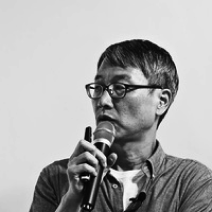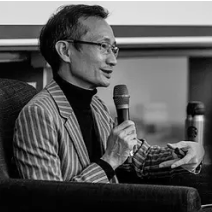主題演講
KEYNOTE

J. JEFFREY FRANKLIN
Professor, English, University of Colorado Denver
Materiality, Immateriality, and Unity in British Modernism: Aldous Huxley’s Eyeless in Gaza
Moderator: Yu-cheng Lee (Distinguished Researcher, Academia Sicica)
When Virginia Woolf famously wrote that “on or about December 1910 human character changed,” what, exactly, had changed? How had the foundational Western dualistic ontology of matter-versus-spirit changed, as reflected and constructed by literature? How had the understandings of embodiment and subjectivity changed, the conceptions of self as the manifestation both of the body and of the identity, consciousness, or soul? This keynote explores answers to these questions at a specific historical moment in Britain, namely the interwar years, the 1920s-1930s, during the culmination of “high modernism.”
One reason for this historical focus is because it was then that the devastating trauma of World War I overlapped with the re-traumatizing realization that World War II was in the making. The graphic, bodily materiality of death and loss on an epic scale called millions to seek some form of spiritual succor, as well as to seek political justification and remedy. A second reason for focusing on the 1920s-1930s is because it was then that the modern physics of quantum mechanics and relativity had disseminated sufficiently within university-educated culture to transform understanding of materiality and immateriality. Mass and energy, particles and waves, now were fluidly convertible, perhaps matter no longer lifeless, perhaps life no longer the divine spark that for over nineteen centuries had set it outside of and high above materiality.
Many scholars have investigated these issues in the writings of Virginia Woolf, which is one of the reasons that I have chosen to focus instead on the writing of her sometimes dinner guest, correspondent, and perhaps friend, Aldous Huxley. I focus here specifically on the culminating novel of Huxley’s early, England-based career, Eyeless in Gaza, published in 1936, analyzing how the novel represents the modernist engagement with the historical dualism of materialism and immaterialism.
專題演講一
PLENARY SPEAKER

Prof. Woosung Kang
Seoul National University
Sandman and Bartleby: Disjunctive Synthesis of the Uncanny
Moderator: Prof. Pin-chia Feng (National Yang-Ming Chiao-Tung University)
Psychoanalysis is, by definition, the study of psychic reality, a strange, volatile mixture of illusory representations and felt affects, which is neither objective sensible realities nor conscious subjective phenomena. Psychic reality, for Freud, follows only one law: pleasure principle. But “death drive,” with repetition compulsion, disobeys this law by creating symptomatic uncanniness beyond psychic reality: trace, phantom, gmoderator, and virtual reality. Psychic reality thus becomes an expression in images and affects of this uncanny “immateriality” behind or beneath it. Like Derridean notion of “trace,” uncanny materiality cannot easily be conceptualized in philosophical speculation. Reading E.T.A Hoffmann’s “Der Sandmann,” Sigmund Freud’s “Das Unheimliche,” and Herman Melville’s “Bartleby” together in terms of the way this uncanny is produced as sheer fantasy, I would like to problematize the basic ideas of object-oriented ontology and “the immaterial” in recent critical theories.
專題演講二
PLENARY SPEAKER

黃涵榆教授
國立臺灣師範大學英語系
虛無的聲音:兼論黑金屬與當代哲學的交會
Moderator: 單德興 (中央研究院特聘研究員)
德希達從他早期圖文學(grammatology)階段開始就持續對西方語音邏各斯中心主義(phono-logocentrism)進行解構:聲音並非意義的顯在(presence),而早已是書寫或符號的延異,也是散種、延遲、迂迴和差異的開展。阿岡本在他的《語言與死亡》中企圖解構海德格和黑格爾兩人思想中尚未被思考的否定性,他將這個根本的否定性命名為「聲音」(the Voice);而他有關聲音的哲學思考指向某種無法被語言與思考捕捉的沈默或無語的狀態。類似的哲學思考路徑鬆動或問題化「聲音」、「聽」、「見」和「到」之間的連結。用具有解構色彩的現象學語彙來說,聽覺經驗必然是「痕跡」,當我們宣稱聽見或聽到什麼的時候,那聽覺的客體早已不見或不在,聲響的(the sonorous)和聽見的(the audible)之間不必然有顯而易見的連結。從這個角度理解的聽覺經驗並非一個表意清楚、和諧的同一性系統,而是充滿異質、不協調、聽而不見、變異的元素,超出聽覺知覺系統所能承載和馴服的程度。我在我的演講裡暫且將這樣的聲音命名為「虛無的聲音」,也是否定性的聲音。我會先鋪陳一些有關聲音的哲學思想脈絡,接著討論包括幻聽、失音症(amusia)和其他無法辨識聲響來源與路徑的極端聽覺經驗。我並不打算完全從臨床醫學的角度病態化這些聽覺經驗,而是要從中帶出當代思辨實在論(speculative realism)對於聲音研究的意義:也就是說,去思辨那些超出人類語言、知覺和思考框架卻必然存在的實在性(reality)。在這樣的思考脈絡下,本演講的後半部將討論黑金屬(black metal)不只是大眾文化裡的重金屬搖滾的一種音樂類型,同時是對傳統樂理的僭越,聲響、發聲和聽覺器官的「解疆界」、「魔化」或「黑化」(blackening)。我要論證黑金屬透過虛無荒涼的聲音表達對於厭世的哀悼,以及不死生命的纏繞,同時更是脫離人類或人類中心主義向度的做哲學的方法。




